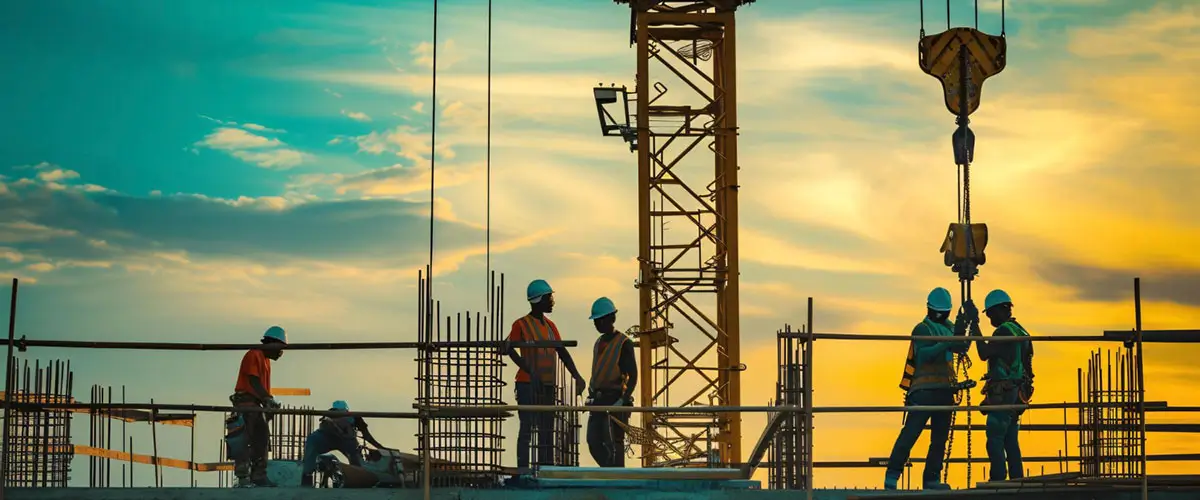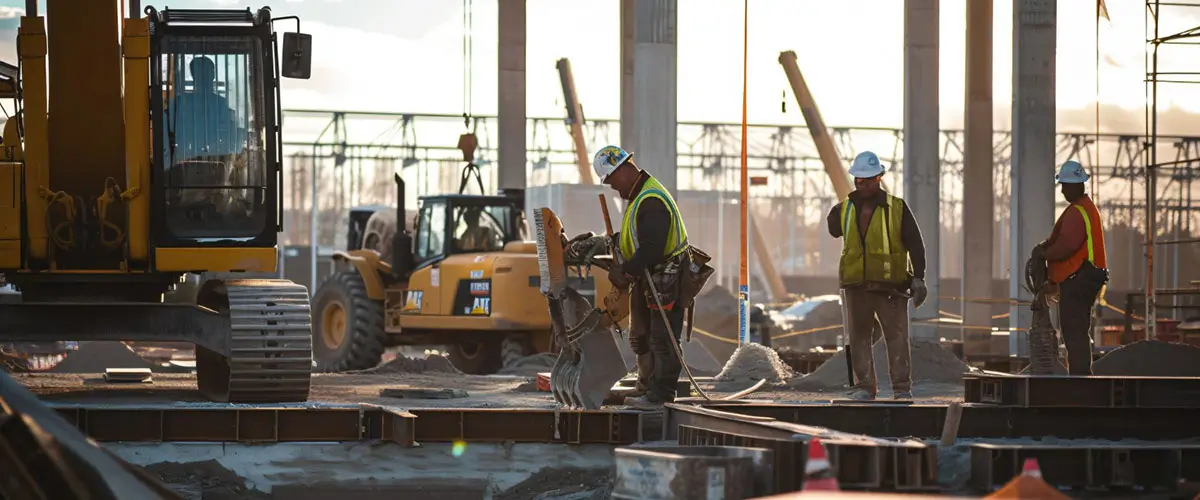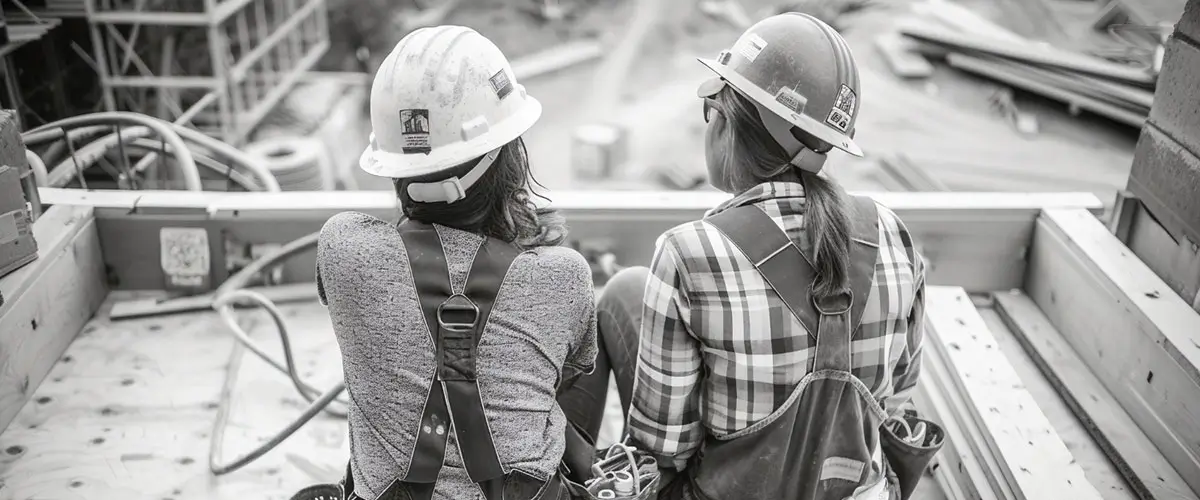Understanding The Best Cement For House Construction: OPC, PPC, Or PSC
Overview of Cement Types for Construction
When we embark on new house construction projects, one of the most critical decisions we face is selecting the appropriate type of cement for home construction or any other cement works. The best choice we make must align with the specific requirements of our construction project it may be commercial building construction or home construction or any other construction type. Choosing the right cement not only affects the structural integrity and durability of our buildings but also impacts the overall construction cost and project timelines as well.
Among the various types of cements available in the market, there are three major types stand out for their wide usage in residential construction: Ordinary Portland Cement (OPC), Portland Pozzolana Cement (PPC), and Portland Slag Cement (PSC). Each of these cement types possesses unique characteristics that cater to different construction needs and environments. Factors such as climate conditions, required strength, and intended use of the structure often influence our decision regarding which cement is most suitable.

» Ordinary Portland Cement (OPC) Explained
Ordinary Portland Cement (OPC cement), commonly referred to as OPC, is perhaps the most recognized type of cement used in construction. It is available in three distinct grades: 33 Grade, 43 Grade, and 53 Grade. The strength of OPC is primarily determined by the grade which we selected, which indicates the compressive strength (measured in megapascals, MPa) that the cement will achieve after 28 days of curing.
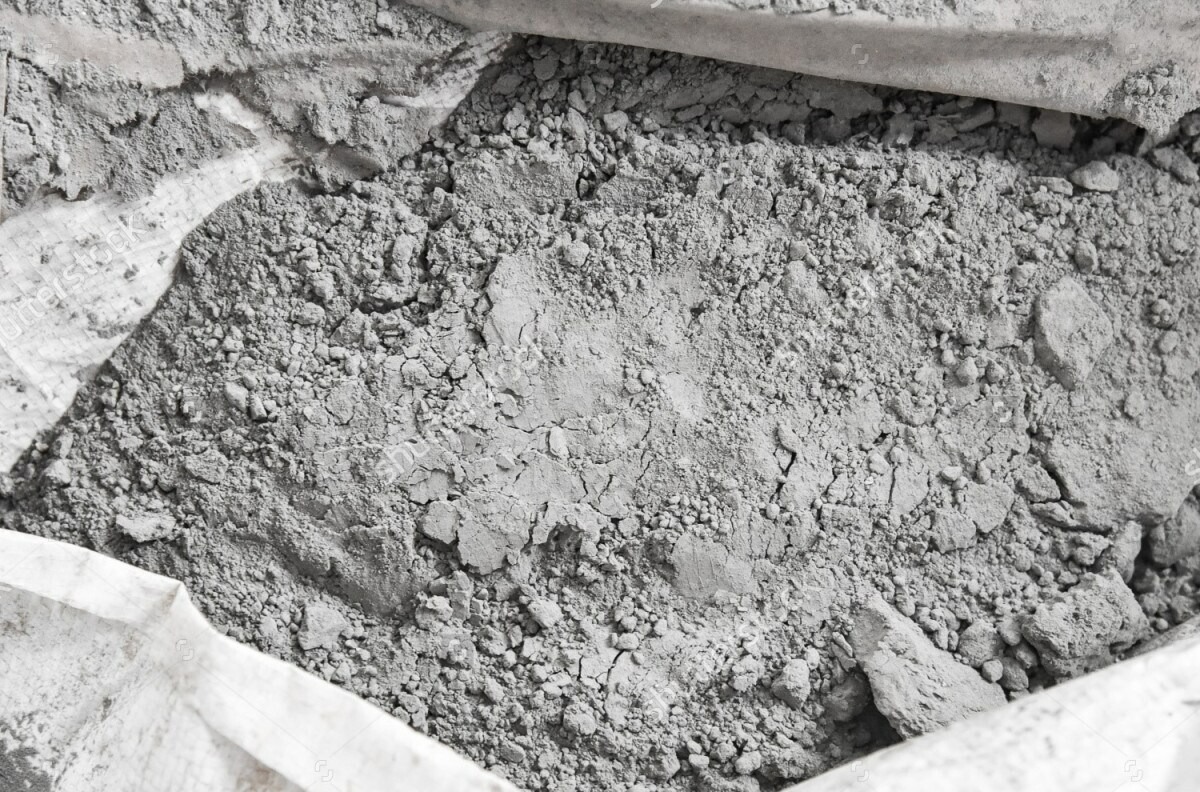
-
Grades and Strength Characteristics
- 33 Grade: Suitable for low-strength applications and general masonry work.
- 43 Grade: A versatile choice, ideal for various structural applications, including beams, columns, and slabs.
- 53 Grade: Recommended for high-strength requirements, typically used in demanding construction tasks, such as high-rise buildings and industrial projects.
-
Advantages and Common Uses
OPC is renowned for its rapid setting time, making it a go-to choice for projects that necessitate early formwork removal. It is particularly advantageous for structural elements due to its high initial strength, which allows residential and commercial construction to proceed without delays. However, it’s important to be mindful of its higher heat of hydration, which can lead to cracking if not managed properly.
-
Considerations: Heat of Hydration and Cracks
While OPC cement offers various benefits with respect to its grads, we must also consider its susceptibility to cracking, especially in thicker sections where temperature variances can cause stress. For projects where thermal stability is paramount, exploring alternative cement like PPC may be beneficial.
» Portland Pozzolana Cement (PPC) Features
Portland Pozzolana Cement is another popular choice for house construction or commercial building construction. It is produced by blending OPC with pozzolanic materials, which enhance its properties and performance.
-
Composition and Performance Aspects
PPC (Portland Pozzolana Cement) generally possesses lower initial strength compared to OPC, yet it compensates with superior long-term strength and reduced heat of hydration. This makes it an appealing option in scenarios where prolonged curing periods are anticipated.
-
Strength Development Over Time
One key advantage that PPC offers is its ability to gain strength over time, resulting in a durable product suitable for various methods of applications, including plastering, tiling, and brickwork. This gradual gain in strength renders it an excellent choice for structures that undergo intense environmental variations.
-
Application in Various Construction Tasks
We often prefer PPC cement (Portland Pozzolana Cement) for non-structural elements due to its enhanced workability and finishing characteristics. It provides better resistance to chemicals, making it ideal for environments with exposure to sulfates or chlorides.
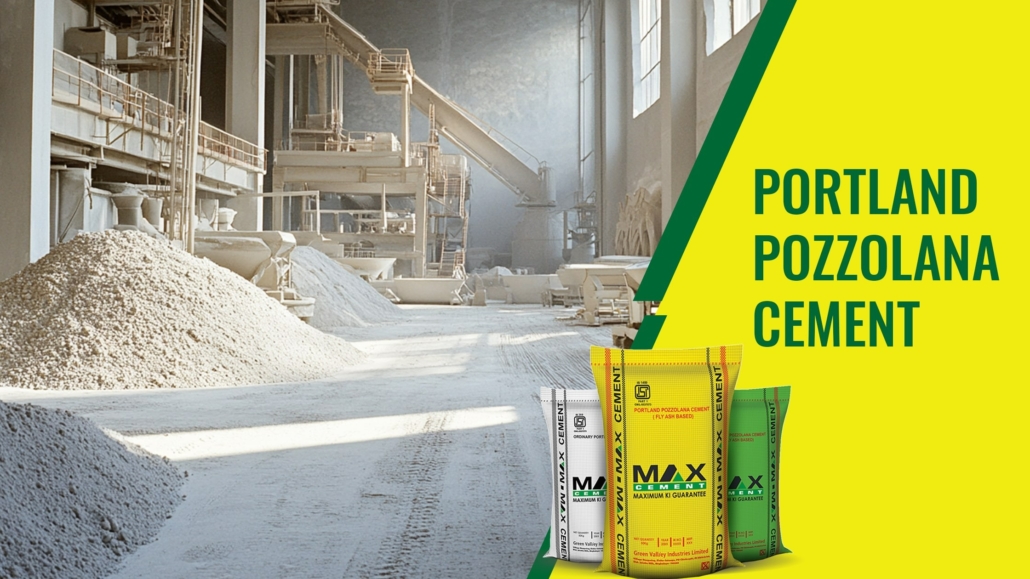
» Portland Slag Cement (PSC) Advantages
Portland Slag Cement (PSC Cement) is another variant of cement compared to PPC and OPC, that distinctively caters to specific construction environments. This type of Portland Slag Cement incorporates slag from steel manufacturing, which not only improves its performance but also contributes to sustainability goals by recycling industrial by-products.
-
Key Properties and Resistance Measures
PSC cement offers exceptional resistance to sulphate and chloride attacks, making it particularly suitable for coastal construction or projects that demand resilience against aggressive environmental conditions. The incorporation of slag material significantly enhances its ultimate strength and durability.
-
Ideal Construction Scenarios for PSC
For structures built in coastal areas or regions prone to seawater exposure, PSC cement is often the recommended choice over OPC and PPC cement due to its corrosion-resistant properties. It is beneficial in aquatic environments, sewage treatment plants, and similar areas requiring extended durability.
» Advantages of PSC (Portland Slag Cement) Cement
- Eco-friendly
- Higher Durability
- Low heat hydration
- Use for Multi-purpose and gets better finishing
- Higher & long term strength
» Disadvantages of Portland slag cement
- Not suitable for cold climate conditions
- Less strength generation
- Less effective against sulphate attack
- Colour difference compared to other cement
» How to Select the Best Cement for Your Project?
Choosing the best cement for our construction project involves a comprehensive evaluation of several factors.
-
Evaluating Construction Requirements
We need to ascertain the structural requirements of our project. For instance, if we are focusing on high-strength structures, we might opt for OPC, particularly the 53 Grade.
Conversely, for projects where workability and long-term durability are paramount, PPC could be the better choice.
-
Time Constraints and Setting Periods
Understanding the timeline for our construction needs can also affect our choice of cement. If quick setting is essential, OPC will typically serve us better than PPC. However, if we can allow for a longer curing period, PPC may yield superior results.
-
Recommendations Based on Environmental Factors
Finally, environmental conditions play a significant role in our decision-making for selecting the types of cement that need to be used while construction. For example, PSC is highly recommended for coastal environments due to its superior corrosion resistance. Evaluating these conditions can save us from future structural challenges.
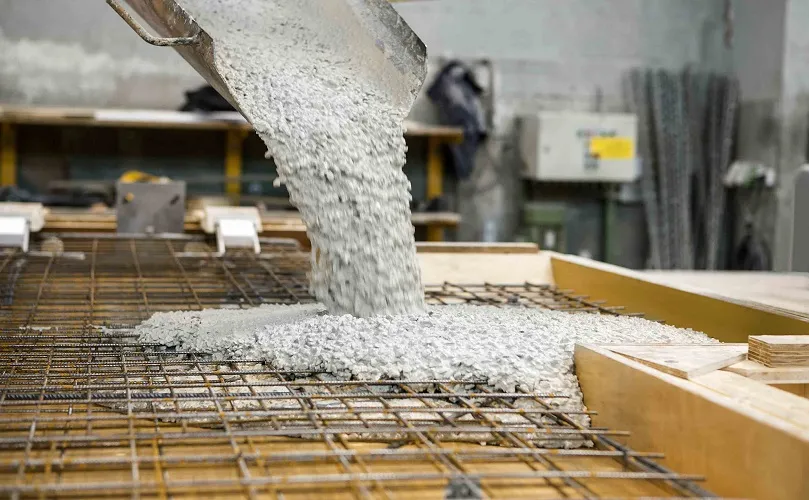
Which Cement Is Best for Your Project? OPC, PPC, or PSC?
Selecting the best cement ultimately depends on various project-specific factors. For heavy structural elements where strength is critical, OPC, particularly in the higher grades, is often preferred. In contrast, if we are more concerned with long-term performance and sustainability, PPC or PSC may prove more beneficial, especially in chemically aggressive environments.
| Ordinary Portland Cement (OPC) | Ordinary Portland Cement (OPC) | Portland Slag Cement (PSC) |
| Composition: Mostly made from clinker produced by burning limestone and clay in a kiln.
Characteristics: Uses: As it allows the construction of buildings, bridges, roads, and other structures that require high strength, it is used in many applications. |
Composition: Blended cement is essentially Ordinary Portland Cement along with pozzolanic materials (for example, fly ash, volcanic ash, or silica fume). Characteristics: • Lower heat of hydration than the corresponding OPC; thereby useful in mass concrete. • Better chemical resistance and sulphate resistance. • Longer setting time, thus improving workability. Applications: It can be used in structures that are subjected to aggressive environments such as marine structures and in mass concrete applications. |
Formulation: blended from OPC and granulated blast furnace slag- which is a by-product of iron production. Attributes: • Durability has been augmented with corrosion resistance. • Very low permeability that drastically reduces cracks. • Good for applications involving high strength. End use: Suited for industrial structures, bridges, and above all durable infrastructure projects. |
| For General construction, purposes have favored OPC due to its immediate use. For mass structures and environments subject to chemical attack, PPC cement is ideal. PSC cement serves high strength and durability applications especially where aggressive conditions exist. Each cement suits different requirements as per the construction project and requirements of different properties. | ||
Tips for Choosing The Best Cement for Your Construction Project
To ensure we select the best cement for our home construction and commercial needs, we should consider the following tips:
- Cement Grade: Understanding the different grades (33, 43, or 53) available on the market and our specific construction requirements will help us select the appropriate one for our project.
- Cost: Evaluating the cost of each type helps us manage our budget without compromising on quality.
- Type of Cement: Based on our construction project’s needs, we can differentiate between OPC, PPC, and PSC cement.
- Setting Period: Considering how quickly we need the cement to set can significantly impact our choice.
- Cement Quality: Opting for high-quality cement ensures durability and longevity.
- Packaging: Ensuring that the cement is well-packaged and free from contamination is critical for maintaining its quality.
Different Grades of Cement
Choosing the right grade of cement is essential. We should be familiar with the three primary grades used in construction:
- 33 Grade Cement: 33-grade cement is suitable for non-structural applications and light engineering work.
- 43 Grade Cement: 43-grade cement is appropriate for most applications in home construction, providing a balance between strength and workability.
- 53 Grade Cement: 53-grade cement is Ideal for critical construction tasks requiring high strength, such as high-rise buildings.
FAQs
-
What are the key differences between OPC, PPC, and PSC cement?
OPC offers high early strength, PPC provides better long-term strength and workability, while PSC excels in environments susceptible to corrosion.
-
Which cement is recommended for durability in house construction?
For durability, PPC and PSC are often preferred, depending on environmental conditions and exposure to chemicals.
-
How does the cost of OPC compare to PPC and PSC for construction projects?
Generally, OPC is comparatively cheaper, but the cost of PPC and PSC may balance out when considering long-term performance and durability.
-
What factors should be considered when choosing the best cement for house construction?
We should consider the project requirements, environmental conditions, budget constraints, and desired strength characteristics.
-
How are PPC and PSC cement produced?
PPC is produced by blending OPC with pozzolanic materials, while PSC combines OPC with blast furnace slag.
-
Which is better, PPC or PSC?
It depends on the application: for general construction, PPC may suffice; for coastal projects, PSC is superior.
-
Which cement is better for long-term strength?
PPC is known for increasing strength over time, making it a robust choice for long-lasting constructions.
-
Is PSC cement good for constructing roofs?
Yes, PSC is a suitable option for roofing, especially in coastal areas or where durability is critical.
-
Does the choice between PPC and PSC depend on specific project needs?
Yes, our choice should align with both the structural requirements and environmental factors.
-
Are there any standards or certifications specific to OPC and PPC cement in India?
Yes, OPC and PPC must comply with IS (Indian Standard) specifications set by the Bureau of Indian Standards.
-
Can OPC and PPC be used together in a single project?
While it is possible, its crucial to ensure compatibility for desired strength and performance.
-
Which cement type is more suitable for large concrete structures?
OPC, particularly the higher grades, is generally favored for large concrete structures due to its high early strength.
-
What is PSC in cement?
Portland Slag Cement is a type of cement made from a blend of OPC and blast furnace slag.
-
Which cement type offers quick setting?
OPC typically offers the quickest setting time compared to PPC and PSC.
-
Are PPC and PSC suitable for high-rise buildings?
Yes, both types can be used in high-rise constructions, with PSC being ideal for coastal settings.
-
Which cement type is more sustainable?
PPC and PSC are often seen as more sustainable due to the incorporation of industrial by-products that reduce waste.
-
Can PPC and PSC be used for residential construction?
Both PPC and PSC can be effectively utilized for residential construction, depending on specific needs and environmental considerations.





